
The Free Church of Scotland is a Scottish denomination which was formed in 1843 by a large withdrawal from the established Church of Scotland in a schism known as the Disruption of 1843. In 1900, the vast majority of the Free Church of Scotland joined with the United Presbyterian Church of Scotland to form the United Free Church of Scotland. In 1904, the House of Lords judged that the constitutional minority that did not enter the 1900 union were entitled to the whole of the church's patrimony ; the residual Free Church of Scotland acquiesced in the division of those assets, between itself and those who had entered the union, by a Royal Commission in 1905. Despite the late founding date, Free Church of Scotland leadership claims an unbroken succession of leaders going back to the Apostles.

Robert Smith Candlish was a Scottish minister who was a leading figure in the Disruption of 1843. He served for many years in both St. George's Church and St George's Free Church on Charlotte Square in Edinburgh's New Town.

Thomas M'Crie was a Presbyterian minister and church historian. He was a Scottish Secession minister who joined the Free Church of Scotland and served as the Moderator of the General Assembly to that church 1856/57.

James Buchanan (1804–1870) was a preacher and theological writer. He was born in 1804 at Paisley, and studied at the university of Glasgow. In 1827 he was ordained Church of Scotland minister of Roslin, near Edinburgh, and in 1828 he was translated to the large and important charge of North Leith. In this charge he attained great fame as a preacher, being remarkable or a clear, vigorous, and flowing style, a graceful manner, a vein of thrilling tenderness, broken from time to time by passionate appeals, all in the most pronounced evangelic strain. In 1840 Buchanan was translated to the High Church, Edinburgh, and in 1843, after the disruption, he became first minister of St. Stephen‘s Free Church. In 1845 he was appointed professor of apologetics in the New College, Edinburgh, and in 1847, on the death of Dr. Chalmers, he was transferred to the chair of systematic theology, continuing there till his resignation in 1868.
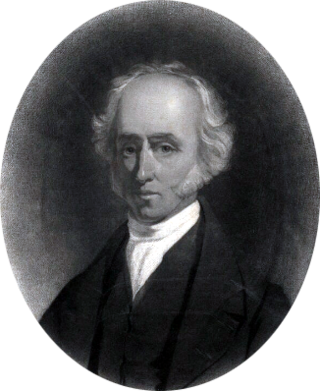
Robert Gordon FRSE was a Scottish minister and author. Originally prominent in the Church of Scotland, and serving as Moderator of the General Assembly in 1841, following the Disruption of 1843 he joined the Free Church of Scotland and became a prominent figure in that church.
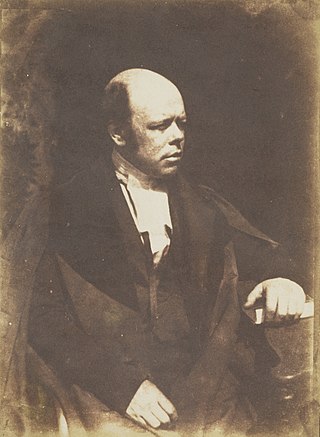
Andrew Gray, was a Scottish presbyterian divine.

Alexander Beith (1799–1891) was a Scottish divine and author who served as Moderator of the General Assembly of the Free Church of Scotland 1858/59.

Mackintosh MacKay was a Scottish minister and author who served as Moderator of the General Assembly of the Free Church of Scotland in 1849. He edited the Highland Society's prodigious Gaelic dictionary in 1828.

Angus Makellar (1780–1859) was a Scottish minister of the Church of Scotland who served as Moderator of the General Assembly of the Church of Scotland in 1840. Leaving in the Disruption of 1843 he also served as Moderator of the General Assembly of the Free Church of Scotland in 1852.
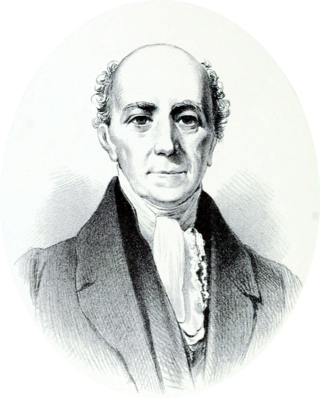
Patrick MacFarlan was a Scottish minister who served as Moderator of the General Assembly of the Church of Scotland in 1834 and as Moderator of the General Assembly of the Free Church of Scotland in 1845.

James Grierson was a Scottish minister who served as Moderator of the General Assembly to the Free Church of Scotland in 1854/55.
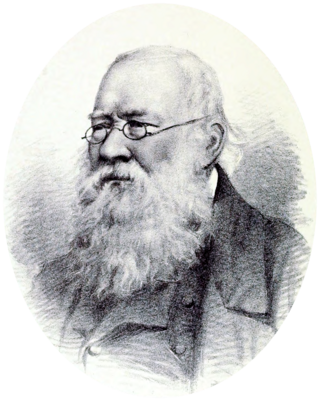
Patrick Clason was a Scottish minister who served as Moderator of the General Assembly to the Free Church of Scotland in 1848/49.

James Julius Wood (1800–1877) was a 19th-century Scottish minister who served as Moderator of the General Assembly of the Free Church of Scotland 1857/8.
Thomas McLauchlan (1815–1886) was a Scottish minister and theological author who served as Moderator of the General Assembly for the Free Church of Scotland 1876/77.

Robert Elder (1808–1892) was a Scottish minister of the Free Church of Scotland who served as Moderator of the General Assembly to the Free Church 1871/72.
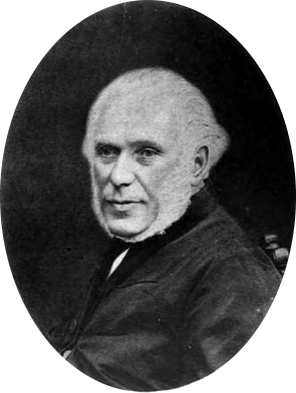
Roderick McLeod (1794–1868) was a Scottish minister of the Free Church of Scotland who served as Moderator of the General Assembly 1863/64.

David Carment (1772–1856) was a minister of first the Church of Scotland and then the Free Church of Scotland, who was involved in the Disruption of 1843 and in the legal troubles of the aftermath regarding church property ownership.

Robert Lorimer was a Presbyterian minister who served in Haddington. After nearly 50 years in the Church of Scotland ministry he walked out during the schism known as The Disruption and joined the Free Church of Scotland.

John Forbes was a Presbyterian minister who served in St Paul's Church in Glasgow. After several years in the Church of Scotland, he left at the Disruption and joined the Free Church of Scotland.
Alexander Stewart was born at the manse in Moulin, Perthshire, on 25 September 1794. He was the son of Alexander Stewart, minister of Canongate, Edinburgh. He was educated at King's College, Aberdeen, and the University of Glasgow. He was ordained to the Chapel-of-Ease, Rothesay, on 10 February 1824 and later translated, and admitted to Cromarty on 23 September 1824. He joined the Free Church in 1843. He continued as the minister of the Free Church, Cromarty, from 1843 to 1847. He was elected to Free St George's, Edinburgh, but died before the induction, on 5 November 1847, of a fever. He was reckoned one of the most eminent preachers in the Church. Hugh Miller wrote warmly of him.




















